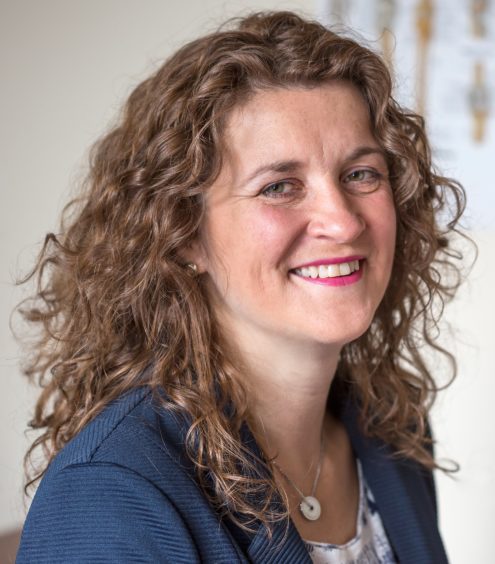As meal replacement plans are introduced by NHS England as a way of tackling diabetes, Brian Stormont examines what is being done north of the border.
Last week it was announced that diabetics in England will be encouraged to try a soup and shakes weight-loss plan as the health service steps up efforts to tackle a condition that costs an estimated £10 million a year.
North of the border a similar approach is already in place aimed at tackling type 2 diabetes through dietary changes with NHS Scotland’s Counterweight Plus programme.
Down south, some 5,000 patients will get access to the diet programme after NHS England said results from a trial showed almost half of people who undertook the plan saw their type 2 diabetes go into remission after a year.
As part of the year-long plan, patients who have been diagnosed with the condition in the last six years and meet other eligibility criteria will be given so-called “total diet replacement products” such as shakes and soups for three months.
Alongside this, they will be supported to increase their exercise levels, and helped to reintroduce ordinary, nutritious food to their diets, with ongoing advice from clinicians and coaches.
Three types of diabetes
Type 1 diabetes can develop at any age, but occurs most frequently in children and adolescents. With type 1 diabetes, your body produces very little or no insulin, which means that you need daily insulin injections to maintain blood glucose levels under control.
Type 2 diabetes is more common in adults and accounts for around 90% of all diabetes cases. When you have type 2 diabetes, your body does not make good use of the insulin that it produces. The cornerstone of type 2 diabetes treatment is healthy lifestyle, including increased physical activity and healthy diet. However, over time most people with type 2 diabetes will require oral drugs and/or insulin to keep their blood glucose levels under control.
Gestational diabetes (GDM) is a type of diabetes that consists of high blood glucose during pregnancy and is associated with complications to both mother and child. GDM usually disappears after pregnancy but women affected and their children are at increased risk of developing type 2 diabetes later in life.
Counterweight Plus
In Scotland, the Counterweight Plus programme involves a total diet replacement phase over 12 weeks, followed by stepped, structured food reintroduction and then a weight maintenance phase over 12-months.
It encourages sufficient weight loss to achieve remission of type 2 diabetes and then focuses on the skills needed to keep weight at this new lower level
The first stage involves total diet replacement (shakes and soups). This is followed by food reintroduction, whereby shakes and soups are reduced with food and drinks gradually introduced back into daily intake.
People are supported throughout the programme which aims to teach them how to manage their weight by making permanent changes to their eating habits and activity levels.
Nutritionist’s viewpoint
Fife-based nutritionist Louise Blanchfield has little faith in meal replacement plans, believing a “quick fix” doesn’t always result in the long-term success that making lifestyle and dietary changes do.
She explained: “In my opinion meal replacement plans don’t work. They’re a quick fix that do result in rapid weight loss initially, but people are hungry all the time on them, they don’t balance blood sugar and they don’t tackle the root problem, which can result in rapid weight regain when people revert to their previous diets.
The only thing that results in proper diabetes remission is lifelong diet and lifestyle changes, and a proper understanding of how our bodies process food and how to eat to support this.
Nutritionist Louise Blanchfield
“The only thing that results in proper diabetes remission is lifelong diet and lifestyle changes, and a proper understanding of how our bodies process food and how to eat to support this.
“NHS England are saying that they will follow up the meal replacement plan with food reintroduction, but in my opinion, they should start with education and not ‘false food’.
“The Scottish Counterweight programme sounds better because of the constant support and more of an emphasis on permanent changes to eating habits and activity levels.”
Ambitious programme
A Scottish Government spokesperson said: “The Scottish Government is taking wide-ranging action to encourage people to be active and make healthier choices.
“As we set out in our 2018 Diet and Healthy Weight Delivery plan, our ambition is to halve childhood obesity by 2030 and significantly reduce diet-related health inequalities.
“We are in year three of our ambitious programme to improve weight management services, and investing £5 million this financial year to support people with, or at risk of, type 2 diabetes or with pre-diabetes. This is an increase of £2 million on the last financial year.
“As part of this, Scotland’s NHS Boards are taking a range of actions to manage people’s weight. This includes a programme called Counterweight Plus with a proven track record in the remission of type 2 diabetes.
“Counterweight Plus is a two-year programme with total diet replacement phase, food reintroduction and maintenance phases, led by specialist weight management dietitians.
“We are currently collecting data on the outcomes of our remission programme in Scotland. This work has been delayed due to Covid-19 and we expect results to be available in 2021.”
‘Important first step’
Bridget Turner, director of policy campaigns and improvement at Diabetes UK, said the programme is “an important first step” for patients to access a remission programme within the NHS.
She said: “We know that some people with type 2 diabetes want and need support from healthcare professionals to lose weight effectively, and now as these programmes are piloted across the NHS they will.
“People with type 2 diabetes who have put their diabetes into remission frequently tell us how it has changed their lives.
“We are so pleased to see that others will now have the same opportunity and hope that it won’t be too long before more remission programmes are rolled out across the country.”



